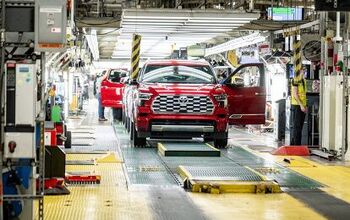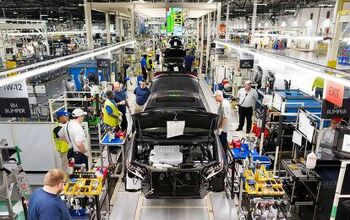Leaked Documents Link Anti-Union VW Incentive Offer To TN Governor's Office
Leaked documents linked to the United Auto Workers battle for the Volkswagen plant in Chattanooga, Tenn. point to a connection between Governor Bill Haslam and the German automaker regarding a $300 million incentive in exchange for over 1,300 jobs at a proposed SUV plant within the state.
WTVF-TV reports the incentives were contingent “to works council discussions between the State of Tennessee and VW being concluded to the satisfaction of the State of Tennessee.” By the time Volkswagen entered into election talks with the UAW in January, however, the Haslam administration formally notified the automaker that it was withdrawing the offer, citing that it had kept the offer on the table past the 90-day window normally reserved for incentives when the incentive in question had no such expiration date.
Though Haslam has denied any such connection to the incentive — dubbed “Project Trinity” — U.S. Senator Bob Corker claimed as early as February of this year that the offering would be made should the workers at the Chattanooga plant vote against representation by the union.
As for the UAW, organizer Gary Casteel stated the following in response to whether the now-public documents were a game-changer in the union’s appeal to the National Labor Relations Board over the election results:
To me, it puts pressure on the state to do what they should have done in the first place — and that’s give the incentives with no strings attached, just like they would any other company, union or non-union.
Seattle-based writer, blogger, and photographer for many a publication. Born in Louisville. Raised in Kansas. Where I lay my head is home.
More by Cameron Aubernon


































Comments
Join the conversation
How are we surprised? The anti Union leaders look more like criminals then the union itself.
I consider this form of incentive is quite socialist and isn't part of capitalism. Should we term it 'socialised capitalism'? People who try and defend this form of expenditure must realise it isn't creating a real market. Imagine if a market is dependent on protectionist barriers, handouts, interest free loans, etc to exist or even subsist, is this a capitalist approach. Is this money better spent on more viable industries, pay down debt, or reduce taxation? I'm really glad our auto manufacturing industry is moving offshore. I'm glad I will not be taxed into subsidising each vehicle to the tune of $2 000 here in Australia. I'm glad we can buy a car manufactured in the US that has been subsidised $3 000 by the very nice US taxpayer so we don't have to fork out our hard earned cash to unions and corporations via taxation or worse still debt. Yes, the US is doing a fine job in manufacturing. Even with the impending demise of our auto industry we are still short over 20 000 people in the automotive industry. We apparently aren't losing all of our industry a sizable portion of component manufacturers will remain. I think that is a smart move, weed out the $hit and let profitable business reign. Here's a very interesting link that will negate the comments supporting US right wing Socialised Capitalism via proetectionism/handouts, etc and the UAW Socialist model via protectionism/handouts. They seems quite similar! Maybe I was correct in my assumptions regarding the so called demise of the Australian automotive industry. Told you so. http://www.dailytelegraph.com.au/business/work/australias-automotive-industry-is-set-to-boom-says-new-report/story-fnkjjdfa-1226868524592
What everybody forgets is that having both Nissan and VW in the same general area has created a magnet for automotive supplies to locate businesses in Middle TN. I read somewhere that about 100,000 jobs have been created because of that. Also no one appears to be taking into account the multiplier effect that all these jobs have on retailers, home builders, and other businesses. I live here and I am fairly ok with the deal.
Lets place the blame where its due. This whole mess started with the VW 'works council'! When in America has a foreign union had such an influence on an American plant on American soil with American workers?? I smell a rat... and me thinks VW smells a little 'ratish'